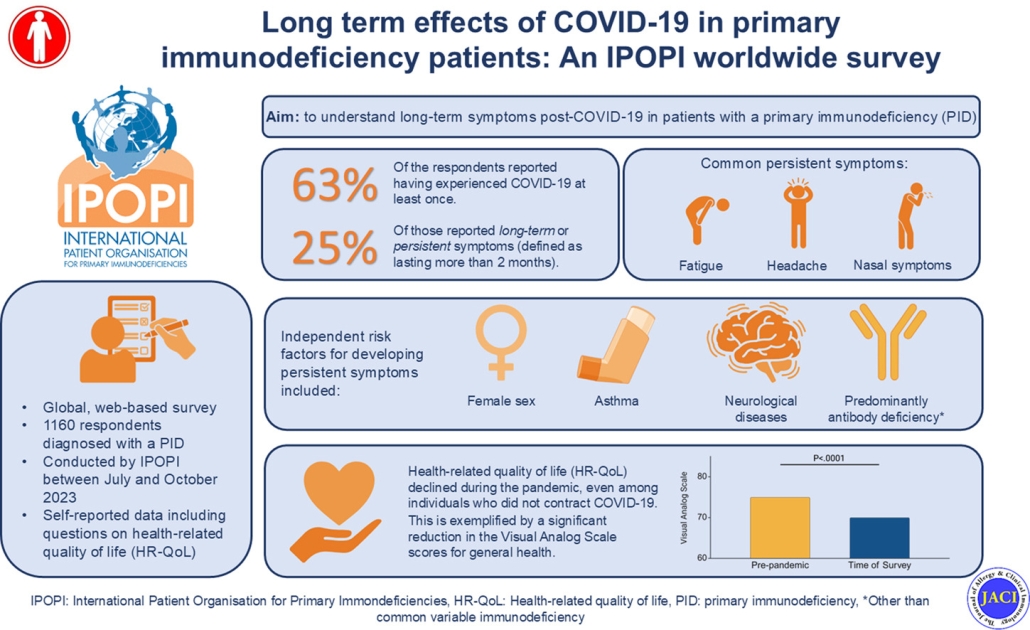IPOPI Global Survey Highlights Long-Term Impact of COVID-19 on PID Patients

IPOPI is pleased to share the results of our global survey on the long-term effects of COVID-19 in people living with primary immunodeficiencies (PIDs), now published and available to the public. The paper titled “Long-term effects of COVID-19 in patients with primary immunodeficiency: An IPOPI worldwide survey” was published in The Journal of Allergy and Clinical Immunology (JACI), a high-impact factor journal in the immunology field. Conducted between July and October 2023, this survey would not have been possible without the generous participation of our international PID community. We extend our heartfelt thanks to everyone who took the time to contribute their experiences.
The survey, which collected responses from 1,160 individuals, aimed to assess the prevalence of persistent symptoms after COVID-19, identify risk factors, and understand the broader impact of the pandemic on the health and quality of life of people with PIDs. A significant finding was that 25% of respondents reported ongoing symptoms after recovering from COVID-19, with fatigue, headaches, and nasal issues among the most common.
Participants with persistent symptoms also reported a higher burden across all health categories—systemic, neurological, psychological, and more—compared to those who recovered fully. Risk factors included female sex, asthma, neurological conditions, and certain PID types. Additionally, 30% of those with long COVID symptoms had not cleared the virus within a month. The survey also revealed that quality of life declined during the pandemic for all PID respondents, even among those who had not been infected with COVID-19.
The insights gathered through this community-led effort will help inform healthcare professionals about the unique challenges PID patients continue to face in the aftermath of the pandemic. IPOPI remains committed to ensuring that the voices of patients with PID are heard and reflected in ongoing research and advocacy efforts.



